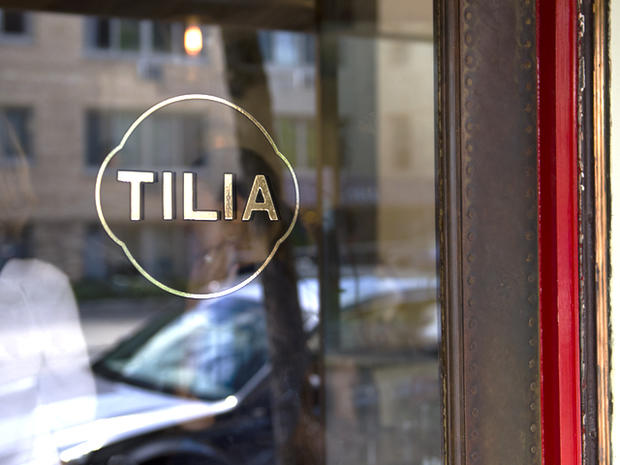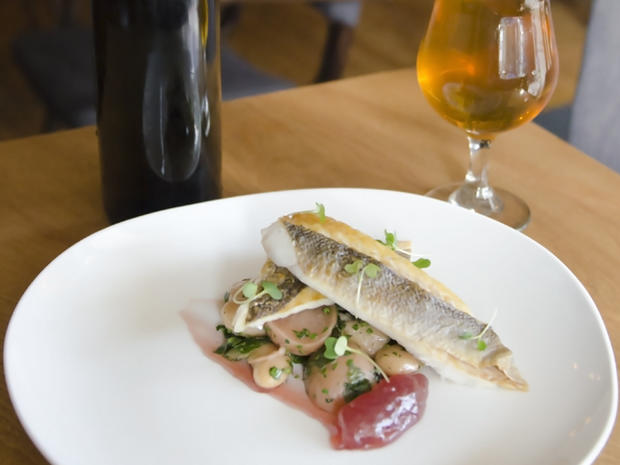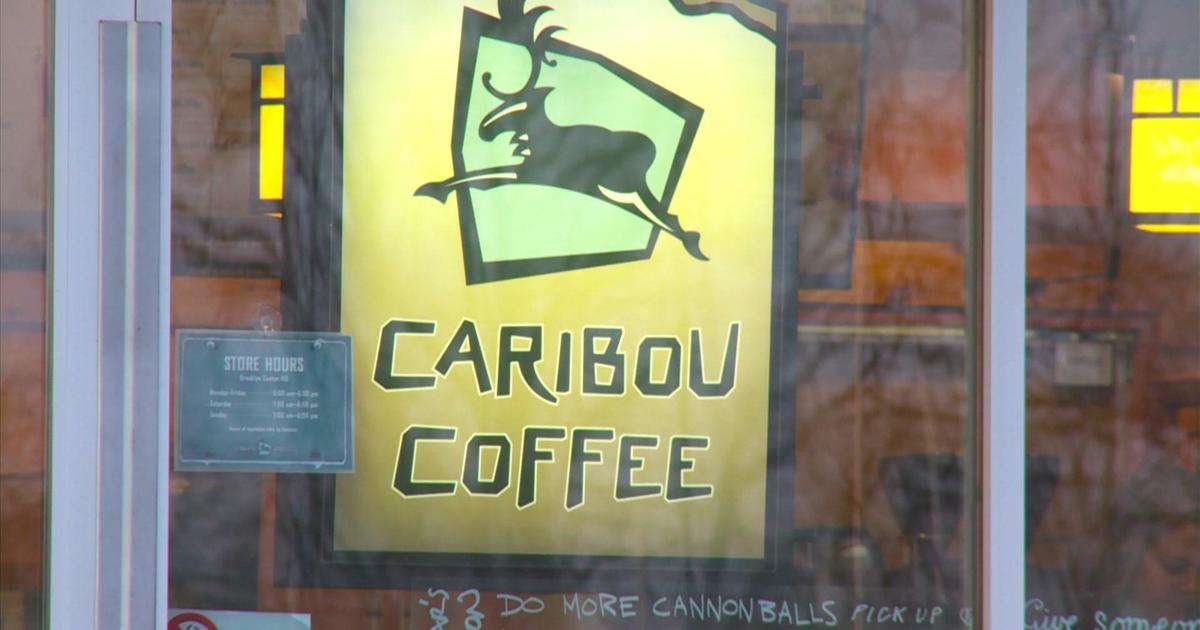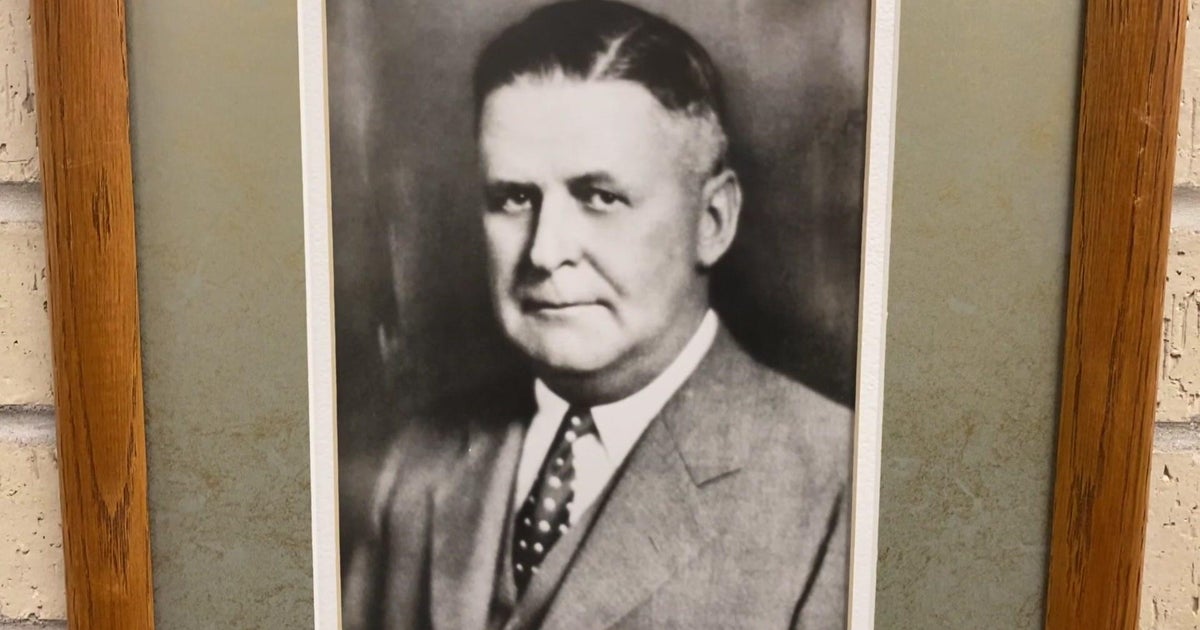Curiocity: A Chef's Profile Of Tilia's Steven Brown, Part 1
The Twin Cities are blessed when it comes to talent in the kitchen. The culinary minds at the helm of our favorite restaurants receive critical acclaim and top honors from food enthusiasts and reviewers, alike. But who are the people behind the chef's coat? Our Chef's Profile aims to find out.
For Steven Brown, it all began with Betty Crocker. That iconic red-and-white cookbook started the spark that eventually spun into being named "one of the best cooking talents this town has ever produced."
But for Brown, it's all just part of his enjoyment of making good food in a comfortable, neighborhood environment.
As partner and executive culinary director of Tilia, Brown lead his team with the idea that what he enjoys in a dining experience, might just be what others enjoy, too. After winning the 2012 Charlie Award for Outstanding Restaurant, being named 2012's Best Chef and Best Restaurant from City Pages and Restaurant of the Year by the Star Tribune in 2011 (plus, the list goes on and on), it's quite apparent that Brown's assumption was dead on.
We recently chatted with the chef about his early beginnings, what motivates his cooking and how he responds to this kind of high praise.
When did you know you wanted to go into the culinary world?
Well, I guess the culinary world, as I knew it, probably started as a wee kid. I was the middle child and I have two sisters, and there was a period in between when I was home with my mom, when my older sister was at school and my younger sister was yet to be born. So my mom would probably, maybe other people from my era and maybe even others might remember, you know the Betty Crocker cookbook, with the red-and-white gingham cover? I was pretty fascinated with that. I wanted to make all the exotic sounding things. I think culminating from when I graduated from the eighth grade, my grandmother gave me this thing called the Fry Daddy, which was this pot kind of thing that made French fries and donuts. Shortly around that time, you know, I grew up in the Black Hills of South Dakota and it was very tourist-oriented in the summertime so at that time it was common for high school, junior high kids to get jobs cooking in restaurants.
So I think when I was 12, I started busing tables and by the time I was 13, I graduated to cooking. I used to wash dishes and I would wash the dishes as fast as I possibly could so I could go up on the line and drop French fries, things like that. And then by the time I was 16 or so, my father, my family has a business, so I went to work for my father and my culinary career was over but I was always very interested in cooking and food, even when I was in college, I had a roommate – you know Bob Quist, he runs the Kelley Farm.
But anyway, we kind of had a deal where we would do the cooking and our other two roommates would do the dishes. We were the only college kids that went to school and rented a meat locker. I don't know how serious we were, but we were definitely interested. Bob used to make bread every Saturday morning and we had a lot of fun. I remember calling my mom to ask how to cook lamb, but it didn't turn out very well – a little muttony, I think. But I was always interested in trying different things.
When I graduated from college, it was sort of grad school or die and I ended up getting a job waiting tables at a restaurant, because my roommate was making twice as much money as me and working half as many hours. So I thought, 'Well, you know, I'll do that for a while.' Didn't take too long for me to kind of gravitate towards the kitchen and after a couple of years, I started thinking, maybe I want to do this as a profession.
It was about that time that I met Doug Flicker, and he really inspired me. He was the first person that I had met who was like, he was almost monastic about his -- if you asked him about music, he'd be like, 'I don't listen to music, I cook.' And I was like, 'Whoa, pretty heavy.' But he was very committed. I think when I worked with him and Lenny Russo was the chef at the place I was working at, he really endued me with this idea that I could actually have a career in cooking, as opposed to doing something that, I dunno, I think my original goal was that I just wanted to make my girlfriend dinner.
So then I just kind of bounced around and worked in different restaurants and very, very fortunately met a lot, not only Doug Flicker, but a lot of really cool people. One of my best friends is Ed Carew and he worked in New York City, went to the culinary institute, worked for Tom Colicchio. … You know, your network sort of grows and I enjoyed doing it. Met a lot of people, got to travel a little bit, it was great.
You mentioned your mother was your initial influence in cooking, do you come from a family of people who enjoy cooking?
You know, I don't think my mother would ever think of herself as a professional cook. But I think she does certain things really, really well. My parents came to visit me one time and my dad was like, 'I've never seen so many restaurants in my whole life.' There were three restaurants in the town I grew up in, and the rest of them closed at 8 p.m. I think very fortunately the whole food movement started happening around the same time. ... I think more and more people started to think of cooking as a professional career. Obviously now, it's, you know.
Yeah, now there's about 100 different TV shows about it.
Yeah, what did someone say about it? "When did cooking become a competitive sport?" But yeah, I think there's definitely good things and bad things that come with it. But it's clearly viable. My grandmother wanted me to be an architect and she was disappointed in some ways that I was a cook. She was like, 'Well, at least, I guess people always need to eat. So you can always find work.'
Looking back, what was your first memorable meal?
I remember really well my older sister and I stealing away and making cinnamon toast on my mother's green shag carpet in front of the television on Saturday morning. I dunno, I think that tasted pretty good. I remember that quite well. I remember lots of foods – I remember the first time I had cilantro. I went to visit my aunt and uncle in Montana and I was like, 'Ooh, that's exotic.' (Laughs) I think that I've always been very curious about food and different cultures and different types and styles of making foods. I'm not afraid to try anything, I guess.
What inspires your cooking? What is it about being a chef that motivates you?
We have kind of our saying that, 'good food tastes good' and I think the root of that is being tangibly sourced. So a lot of it depends on what we can get and when we can get it. At Tilia, in particularly, we want to keep the value aspect, front and center. We don't cook a lot of exotic things – foie gras and lobster. We've had all of those things here but it's not something that we make a feature out of. The more idea is to have a real, friendly casual neighborhood environment. We want to offer some of the foods that you would get with a 'fine dining' experience but without all the pomp and circumstance.
I sort of realized a number of years ago really who I am and what I like. I like all these foods but I'm kind of a Midwestern kid, so I like things better when they're more comfortable when I dine out. I like those experiences but it's not what I would do every day. Our goal is to have a place where people can go every day. I have a saying that I co-opted from a place that I used to frequent years ago, 'Where regulars feel special and special people feel regular.' So that's what we're trying to do every day – whether that's with the food or the service or the beverage program, it informs our other stuff. I think that also goes back to being intelligently resourced.
You have a menu and an ideology for your restaurant that you really believe in and it seems you've made everyone else a believer, too. What is it like for you to receive such high praise?
I guess maybe that's part of it – when you're genuine and sincere about things, I think it translates. I used to have a friend who called it honest cooking versus precious cooking. He talked about being honest with the food and honest about who you are -- and I don't mean honest like not lying, but I think sometimes people feel like it has to be this little moment ... but in fact, I think that this is a more, not just here, but a general trend where people are really starting to discover that there's appeal to making an ultimate hamburger and there's many, many very humble foods that can be elevated to great status. That doesn't mean that we put foie gras on a hamburger – that just means we are again intelligently thinking of the process and thinking about the steps that we take to make it the best that we can. Hopefully that translates into something that's memorable to our guests.
Before you opened Tilia, did you have any idea that it would be as successful as it is?
No, in a lot of ways I was a little beat up when I thought about doing this. I thought long and hard about maybe doing something else. I talked to a friend about maybe opening a food distribution company but I always, I think after cooking in restaurants and working in restaurants, it is kind of the holy grail to open your own place. This space became available and it was kind of funny, a couple of people called me to say, 'You know, Rice Paper is moving. You should go check out this spot in Linden Hills.' The first time I was like, 'Yeah, yeah, yeah,' the second time I was like, 'Well, so what's this lady's phone number?' Then I came in and looked at the place, and that siren call sort of pulled me back so I talked it over with my wife, and I lashed myself to the pole and gave it a go.
Check back next week for Part 2 of our chat with Steven Brown. For more information on Tilia, click here.





